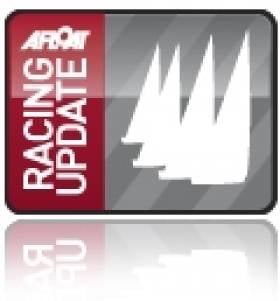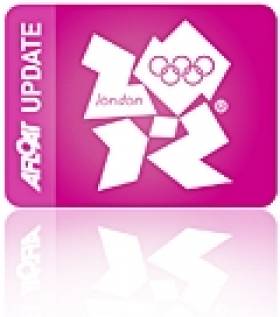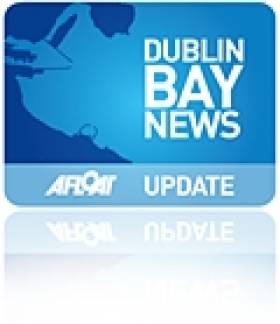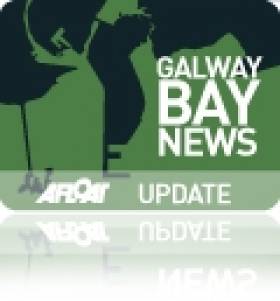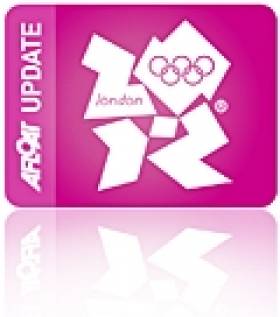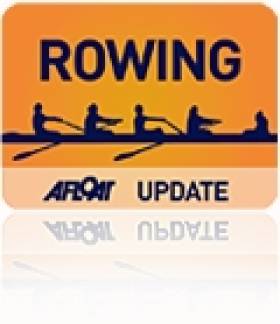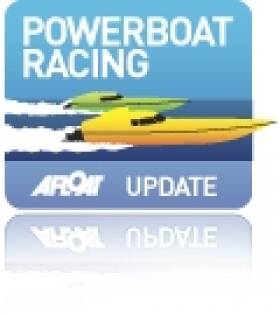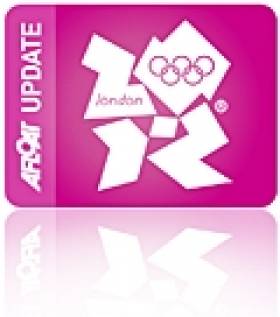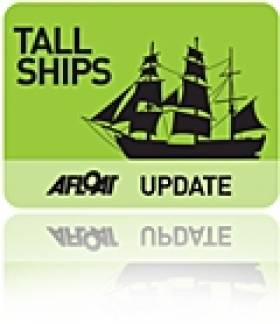Displaying items by tag: Irish Sailing Association
'The Rules of Racing' Lecture in Castlebar This Thursday
#RACING - Mayo Sailing Club's winter series of lectures continues this Thursday 23 February with a talk by Ed Alcock on 'The Rules of Racing'.
Alcock is racing manager of the Irish Sailing Association (ISA), and his lecture will outline the laws that govern racing by windpower on the water in Ireland, covering classes from yachts and dinghies to windsurfing, kitesurfing and more.
Topics to be covered include rights and obligations on the water, giving way, keeping clear, red flags and protest forms.
Sailors of all craft are invited to attend the evening, and anyone wanting to get involved in racing is also welcome, especially with the 2012 racing season only eight weeks away.
Alcock's talk takes place this Thursday at 7.30pm in GMIT Castlebar. The Galway Advertiser has more HERE.
Worrall Thompson Thanks Irish Wife at Fundraiser for 470 Duo
#WORRALL THOMPSON - Celebrity chef Anthony Worrall Thompson - in Dublin at the weekend for a fundraiser for Olympic hopefuls Ger Owens and Scott Flanigan - has credited his Irish wife with being the "rock" that kept him going through his recent shoplifing controversy.
"She is absolutely amazing," he told the Irish Independent of his Dublin-born wife Jacinta Shiel. "We met nearly 20 years ago. She's gorgeous, she's got a great heart and she's my rock."
Worrall Thompson was at Malahide Rugby Club on Saturday to judge a celebrity chef night in aid of the Olympic 470 duo's bid for a spot at the 2012 games, as previously reported on Afloat.ie.
He kept his promise to attend the event following last Monday's public apology for his "stupid and irresponsible actions" after he was caught shoplifting cheese and wine from a Tesco store.
Worrall Thompson also donated his appearance fee from RTÉ's Saturday Night Show to Owens and Flanigan, who require sponsorship to supplement their support their funding from the Irish Saling Association.
AIB No Longer Covering Sailing Club Subs for Staff
#SAILING CLUBS - Sailing enthusiasts on AIB's staff have taken a blow to the wallet as the bank is to stop paying club membership fees for employees, the Irish Independent reports.
In an e-mail seen by the paper, AIB head of human resources John Conway said the cuts - which came into effect on 1 January - were the result of a review of benefit structures within the bank, which is dealing with "ongoing problems".
The change brings to an end two benefits-in-kind that had been considered significant attractions for new employees, the other being special lending rates for staff members.
Up till the end of 2011, AIB covered 50% of club membership fees up to €1,250 for rank and file employees, and 100% of fees up to €2,500 for management. Bank of Ireland staff continue to receive similar perks.
The moves comes not long after the Irish Sailing Association's announcement of proposals to revise its sailing club membership fee structure.
As previously reported on Afloat.ie, the ISA will convene an EGM next month to discuss changes to the 'joint membership scheme' in favour of a "single fee formula that is proportionate to a club's membership subscription income".
The Irish Independent has more on the story HERE.
DCC Votes Tonight on Clontarf Flood Defences
#DUBLIN BAY NEWS - BreakingNews.ie reports that Dublin City Councillors will vote tonight on whether to give the green light to the controversial flood defence plan for Clontarf.
Thousands of people have held protests in the north Dublin suburb over recent weeks to show their opposition to the plan, which involves mounds or walls up to and above 7ft high, arguing that the council did not allow for any public consultation.
As previously reported on Afloat.ie, the Irish Sailing Association has urged DCC to defer the vote, which has also faced strong opposition from local business owners.
No More Long Stays at Kinvara Pier Says Galway Council
#GALWAY BAY NEWS - Galway County Council has prohibited the parking of camper vans and yachts on Kinvara Pier "for the purpose of habitation".
The new by-law came into effect last month came following a number of complaints that camper vans and boats were remaining for extended periods in the vicinity of the pier.
However the move does not affect vessels used for "bona file navigation", after the ISA lobbied to protect the interests of visiting boaters wishing to use the pier for overnight stays.
British Sailors Want Redress Over 1980 Olympic Boycott
#OLYMPICS - "Lingering bitterness" among British sailing veterans over the boycott of the 1980 Moscow Olympics has pushed them to seek recognition for the effort they put into their campaigns, the Daily Telegraph reports.
The Royal Yachting Association (RYA) was one of four sporting bodies that joined the British government's boycott of the Olympics that year.
But according to the sailors who had earned their spots at the games, the RYA's decision was made without consultation with them or the body's membership.
“They took away our dream, the fruits of months and years of hard work and dedication which is something I will regret until my dying day,” said Soling sailor Gavin Simonds, who is leading the charge for the RYA to make amends before London 2012 and assure that no sailor will be so deprived in future.
Simonds' brother Colin was the one of the leading Soling sailors in the world in 1980, and was reportedly devastated when the RYA backed that year's boycott.
The 1980 games saw Ireland win its only Olympic medals in sailing when David Wilkins and James Wilkinson took silver in the Flying Dutchman class. The president of Irish sailing's governing body has an honourary seat on the RYA council.
The Daily Telegraph has much more on the story HERE.
Irish Aquatic Sports Off Target for Olympic Spots
Ireland's aquatic sports are way off target for qualification for next summer's Olympic Games, according to performance heads.
“The reality is we’re no better than a 50-50 chance of qualifying a crew," said Rowing Ireland performance director Martin McElroy, who has been putting his focus on the men’s lightweight double scull, the women’s lightweight double scull, and the women’s open double scull.
The Irish Times reports that just two Olympic spots in each category remain, to be decided next May at the Lucerne Regatta.
McElroy lamented that Irish rowing is "missing a generation of athletes".
He added: "What has happened in rowing is the budgeting is usually year on year, and so the senior crews get the spotlight, and the danger with that is you lose sight of the under-23s, who need to serve their apprentice."
Hopes for Olympic medals rest with sailing, with James O'Callaghan of the Irish Sailing Association delcaring that its goal "is to have an Irish team stand on the podium in London".
Powerboat Racing's 'America's Cup' Returns to Cork
Plans are afoot to bring powerboat racing's Harmsworth Trophy event to Cork in 2014 - over 100 years since Cork Harbour hosted the first ever edition of the race. SCROLL DOWN FOR ARCHIVE Footage.
Regarded as the powerboat version of yachting's America's Cup, the first Harmsworth Trophy was won in July 1903 by Napier, which was allegedly piloted by women's world land speed record holder Dorothy Lewitt.
According to the Tom MacSweeney column in the Evening Echo, a consortium is hard at work to bring the race back to its birthplace - coinciding with the Round Ireland Powerboat Race, which will also be held out of Cork in 2014.
Denis Dillon of the Irish Sailing Association commented: "There is a group of Cork enthusiasts interested and is trying to put a consortium together that would also bring back one of the original 1903 boats still is existance which is in the USA.
"It came first in its class and second overall in the race in 1903 and they hope to bring it back for the 2014 race."
Sailing Determined to 'Stand on Podium' in 2012
Irish sailing bosses are determined to "stand on the podium" at the 2012 Olympic Games.
That was the message from last week's briefing by Ireland's four Olympic 'water sports' of canoeing, rowing, swimming and sailing, covered in The Irish Times.
For next summer the Irish Sailing Association has narrowed its focus on three boat classes - the Star Class, 49er and Laser Radial.
But the competition will be tough, with more than 40 countries vying for a handful of remaining Olympic spots at the Perth Sailing World Championships in December.
Other sports are more modest in their aspirations, with rowing rebuilding from the ground up with younger athletes, and Swim Ireland pushing forward with a streamlined team and plans to have six swimmers compete in London next summer.
In canoeing, Eoin Rheinisch - who placed fourth in the canoe slalom in Beijing - was on hand to discuss his qualification hopes, with two chances to clinch a spot between now and the games.
The Irish Times has more on the story HERE.
Sail Training Ireland Assumes Mantle of Asgard
Writing in the Irish Independent on Saturday, WM Nixon welcomes the introduction of Sail Training Ireland as a big step towards getting Ireland back into tall ship sailing.
Nixon also pays tribute to Ireland's previous square-rigger, Asgard II, which held its own among taller competitors for almost three decades before its sinking in the Bay of Biscay in 2008.
That ship was also remarkable for being "one of the very few government owned and run sail training ships in the world".
In the wake of Asgard II, a new approach is being taken with Sail Training Ireland - which is an officially recognised voluntary trust, actively supported by the Irish Sailing Association, that is open to anyone and free to accept donations and corporate endowments.
"The sailing community and all those interested in promoting maritime affairs now have an opportunity for self-reliance," writes Nixon, who notes that while we get back on the road to having our own tall ship, Sail Training Ireland will be able to place Irish trainees on other ships already sailing for invaluable experience.



























